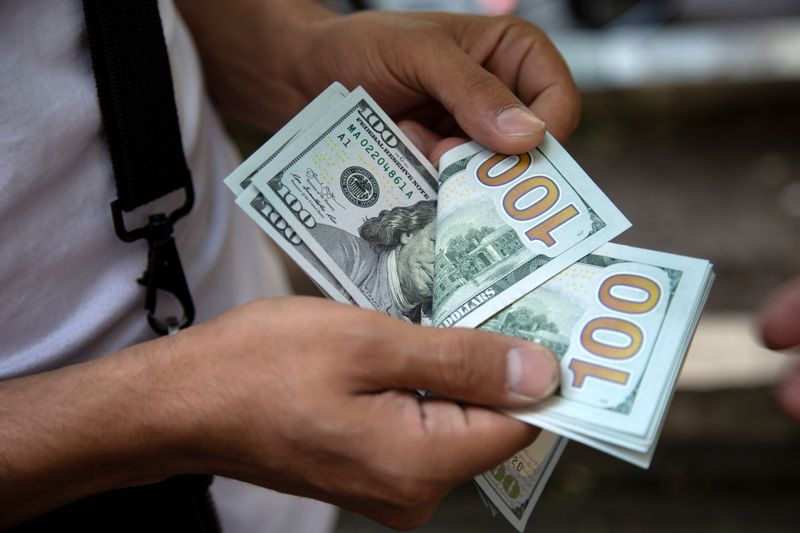By Gina Lee
Investing.com – The dollar was up on Thursday morning in Asia, with the euro weakening and increased demand for safe-haven currencies as concerns of an imminent Russian invasion of Ukraine intensify.
The U.S. Dollar Index that tracks the greenback against a basket of other currencies was up 0.41% to 96.580 by 11:48 PM ET (3:48 AM GMT). It rose as much as 0.19% to 96.372 for the first time since Feb. 14, 2022.
The USD/JPY pair edged down 0.16% to 114.78.
The AUD/USD pair fell 0.65% to 0.7186 and the NZD/USD pair fell 0.72% to 0.6723.
The USD/CNY pair inched up 0.05% to 6.3172 while the GBP/USD pair edged down 0.18% to 1.3518.
Russian President Vladimir Putin announced a special operation to “protect” Ukraine’s Donbass (Donbas) region, according to a TASS report citing a speech. While Putin said that while Russia has no plans to occupy Ukraine, he urged Ukrainian forces to put down their arms and go home and that Russia would not let Ukraine secure nuclear arms, the report added.
A state of emergency has been declared in Ukraine, and Russia began evacuating its embassy in the Ukrainian capital city of Kyiv. The West reacted by slapping sanctions on Russia, with the U.S. joining Germany in sanctioning the Nord Stream 2 gas pipeline linking Germany and Russia.
The dollar, Japanese yen, and Swiss Franc all climbed towards multi-week highs against the euro. The dollar remained near a one-week peak after U.S. Secretary of State Antony Blinken said he believes Russia will invade Ukraine within hours.
Riskier commodity-linked currencies also fell, reflecting investors’ decreasing risk appetite, losing its resilience from earlier in the week. The euro fell as much as 0.26% to $1.12750, its lowest level since Feb. 3. It also fell 0.29% to 129.640 yen, near the low of 129.360 hit on Tuesday, the weakest since Feb. 3. The single currency also slipped 0.22% to 1.03550 francs, approaching Tuesday’s low of 1.03405, the lowest since Jan. 24.
“We’re definitely seeing a knee-jerk reaction to Blinken’s comments,” with safe-haven currencies in demand and the euro and commodity currencies sold off, Commonwealth Bank Of Australia strategist Joseph Capurso told Reuters.
“The situation certainly looks like it’s going to get worse before it gets better.”
Source : Investing.com


